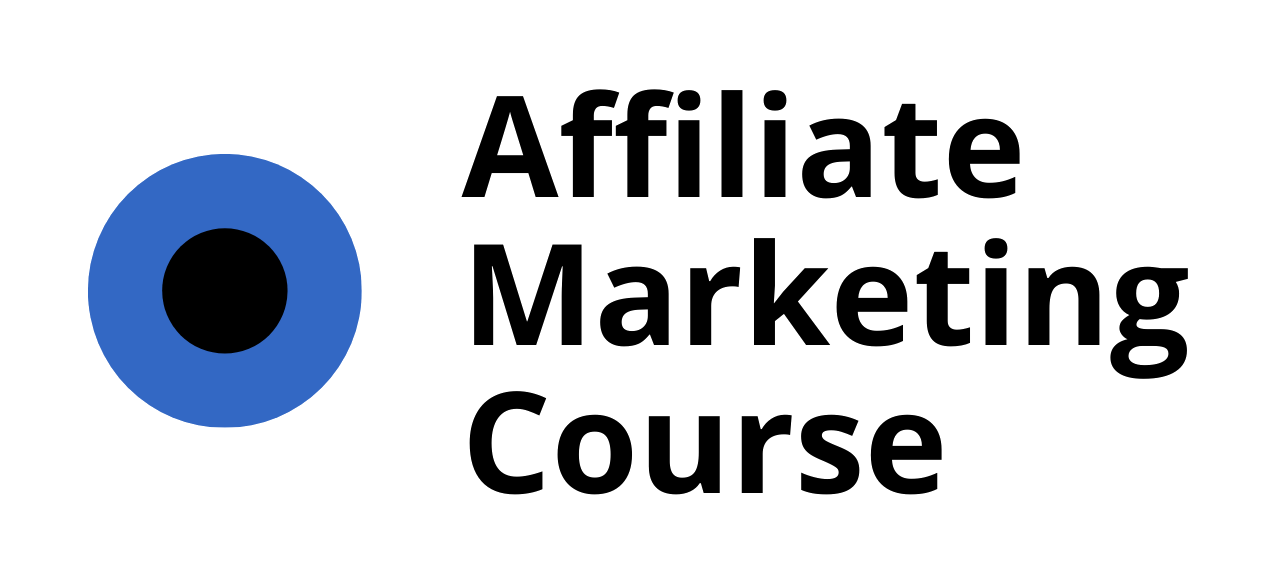Are you struggling to build a successful affiliate marketing strategy? Imagine leveraging a structured approach to streamline your efforts and watch your revenue soar. An affiliate marketing funnel system is a powerful tool designed to guide your audience through the buying journey, ensuring every step is optimized for conversion. Whether you’re new to affiliate marketing or looking to refine your existing strategy, this article dives deep into the essential components of a funnel, explores the top tools available, and provides actionable tips to maximize your success. From understanding the stages of the marketing funnel to discovering the best platforms for affiliates, this comprehensive guide has everything you need to create a robust affiliate marketing funnel system.
Key Takeaways
– Master the affiliate marketing funnel system to streamline your strategy and maximize earnings.
– Choose the right tools for your affiliate marketing efforts, such as Amazon Associates, ShareASale, ClickBank, or Shopify, depending on your niche and business model.
– Maximize your earning potential by selecting high-paying affiliate programs, including those offering up to 75% commissions on digital products.
– Leverage top platforms designed for affiliates, like AffiliateMarketingCourse.biz or CJ Affiliate, to boost your marketing success.
– Optimize your strategy by using email marketing tools, analytics software, and link management systems to track and improve performance.

What is a funnel in affiliate marketing?
A funnel in affiliate marketing is a strategic process designed to guide potential customers through targeted steps, ultimately leading them to take a specific action such as making a purchase or signing up for a service. The primary goal of an affiliate marketing funnel is to maximize conversions by creating a seamless journey that aligns with the audience’s interests and needs.
Here’s a breakdown of how a typical affiliate marketing funnel works:
- Attracting Visitors :
The first stage involves attracting potential customers to your platform or website. This is often achieved through content marketing, social media promotion, or paid advertising campaigns. The goal here is to capture the attention of your target audience and bring them to your landing page or website. - Capturing Leads :
Once visitors arrive at your site, the next step is to capture their contact information. This is typically done through opt-in forms, email sign-ups, or other means of collecting leads. Captured leads are then added to your marketing funnel for further engagement. - Educating the Audience :
To build trust and provide value, the funnel often includes an email series or a sequence of educational content. This could be a series of emails, blog posts, or videos that teach the audience valuable skills or information related to the niche you’re targeting. - Presenting Recommendations :
After establishing trust and providing value, the funnel moves to the point where recommendations are made. This could involve presenting affiliate offers, high-ticket products, or services that align with the audience’s interests. The presentation should be tailored to highlight the benefits and solutions the offers provide. - Completing the Sale :
The final step in the funnel is the actual sale or conversion. Once the audience is convinced of the value of the offer, they are prompted to take action, such as clicking a link, filling out a form, or making a purchase. This is where the affiliate tracking systems come into play to attribute the sale back to the affiliate marketer. - Post-Sale Support and Access :
After the sale is completed, the customer gains access to the product, service, or content they purchased. This could be a digital product, a membership area, or access to a course. Post-sale support ensures that customers feel supported and are more likely to return for future purchases.
By following these steps, affiliate marketers can create a highly effective funnel that consistently delivers leads and conversions, ultimately driving revenue for their business.
What Are the 4 Stages of the Marketing Funnel?
The marketing funnel consists of four distinct stages, each designed to guide potential customers toward making a purchase decision. Understanding these stages helps businesses create targeted strategies to move prospects from awareness to conversion and beyond.
- Awareness :
In this stage, potential customers become aware of your product or service. This can happen through various channels such as social media ads, content marketing, influencer partnerships, or search engine optimization. The goal is to capture attention and introduce your brand to your target audience. - Consideration :
Once aware, prospects may compare your offerings with those of competitors. Providing valuable information, comparisons, and testimonials can help differentiate your brand and build trust. Content like detailed product descriptions, video demos, and case studies are effective tools during this phase. - Conversion :
The final step of the marketing funnel is driving the customer to take action, such as making a purchase. This requires creating a seamless user experience, optimized landing pages, and clear calls-to-action. Offering exclusive deals or limited-time promotions can also accelerate conversions. - Loyalty :
After the initial purchase, fostering long-term relationships with customers is crucial for repeat purchases and brand advocacy. This stage focuses on delivering exceptional customer service, personalized experiences, and loyalty programs. Engaging with customers through email marketing, social media, and feedback mechanisms helps maintain their interest and encourage future interactions.
By strategically navigating through these stages, businesses can effectively nurture leads and maximize their marketing efforts, ultimately driving growth and success.

Do You Need ClickFunnels for Affiliate Marketing?
No, you do not need ClickFunnels to engage in affiliate marketing. While ClickFunnels can be a powerful tool for building sales funnels and landing pages, it is not a prerequisite for affiliate marketing success. Here’s a breakdown of your options:
- Free Affiliate Programs :
ClickFunnels offers a free Affiliate Bootcamp program that allows you to join without a membership. This program provides basic knowledge and tools for affiliate marketing, enabling you to earn commissions without the need for a paid subscription. - Alternative Platforms :
Other affiliate networks like ShareASale and CJ Affiliate provide robust platforms for affiliates to promote products. These networks often have their own tracking systems, reporting tools, and commission structures, making them strong alternatives. - Cost Considerations :
ClickFunnels requires a monthly subscription, which may be a financial burden for newcomers. Free or low-cost affiliate programs exist, allowing you to start without initial investment, though they may offer different earning potentials and resource access. - Learning Curve :
ClickFunnels is known for its complex interface, which may pose a learning challenge. If you prefer simplicity or seek a more straightforward approach, exploring other tools might be beneficial. - Hybrid Models :
Affiliate marketing can be done through multiple channels, not limited to a single platform. This flexibility means you can combine ClickFunnels with other strategies if it aligns with your promotional goals.
In conclusion, while ClickFunnels can enhance your affiliate marketing efforts, it is not essential. Your choice should depend on your specific objectives, budget, and comfort level with technology.

Best Affiliate Marketing Tools
When selecting the best affiliate marketing tools, it’s crucial to evaluate options based on your specific needs, whether you’re running a blog, an e-commerce store, or a standalone affiliate business. Here are some top recommendations:
- Amazon Associates : Ideal for broad-spectrum affiliate marketing, offering a vast array of products and a reliable commission structure.
- ShareASale : Known for its flexibility and competitive commission rates, suitable for various niches and businesses.
- ClickBank : Excels in digital products, particularly eBooks and online courses, with higher commission potential.
- Rakuten Advertising : Specializes in fashion and lifestyle products, potentially attracting a specific audience segment.
- CJ Affiliate : Offers robust programs with high conversion rates, ideal for targeted marketing approaches.
- Shopify : An excellent choice for e-commerce stores, providing a seamless affiliate marketing setup integrated with your store.
- WordPress Plugins : Utilize plugins like AffiliateWP for managing affiliate links and tracking performance efficiently.
- Email Marketing Tools : Enhance your strategy with Mailchimp or ConvertKit to send targeted emails with affiliate links.
- Google Analytics : Essential for tracking traffic and conversions from affiliate campaigns, providing valuable insights for optimization.
- Link Management Tools : Simplify link sharing with tools like LinkTrackers or Pretty Links, ensuring easy tracking and management.
Choose a combination of these tools that aligns with your business model and objectives. Whether you prefer a single platform or a mix of several, the right tools can significantly enhance your affiliate marketing efforts and drive success.
Which Is the Highest Paying Affiliate Program?
Several high-paying affiliate programs stand out in the market, each catering to different niches and offering varying commission rates. Here’s a comparison of some top programs:
| Program Name | Commission Rate | Niches Catered To | Notable Features |
|---|---|---|---|
| Amazon Associates | 10% | E-commerce, Technology, Health | Wide range of products, reliable program |
| ShareASale | Up to 15% | General, Health, Finance | Diverse product offerings, flexible payment options |
| ClickBank | Up to 75% | Digital Products, Health, Fitness | High commission rates, digital products focus |
When evaluating these programs, consider factors like your target audience, the products you wish to promote, and the commission structure that aligns best with your business goals. Always review the specific terms and conditions of each program to ensure compliance with their guidelines.

Which Platform is Best for Affiliates?
Choosing the best platform for affiliates involves evaluating factors like commission rates, support, tools, and target audience. Here are some top platforms:
- AffiliateMarketingCourse.biz – Ideal for those looking to build a sustainable income stream through affiliate marketing. Offers expert advice, strategies, and courses to help affiliates succeed.
- ClickBank – Known for high commission rates and diverse product offerings. Suitable for digital products like eBooks, software, and online courses.
- Shopify – A popular e-commerce platform with a built-in affiliate program. Great for selling products and tracking affiliate performance.
- Amazon Associates – One of the largest affiliate programs, offering a wide range of products and competitive commissions.
- CJ Affiliate – Specializes in fashion, beauty, and lifestyle niches. Offers flexible commission structures and robust tracking tools.
- Rakuten Advertising – Formerly LinkShare, this platform connects affiliates with top brands in retail and financial services.
Each platform has unique features, so the best choice depends on your niche and business goals. Consider factors like commission structure, approval process, and support available.
For more information, visit our affiliate marketing course and explore the resources provided to enhance your affiliate journey.




0 Comments